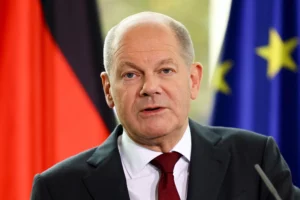This visit underscores the complex, multifaceted relationship between Germany and China, set against a backdrop of evolving global tensions and economic interdependencies.
Chancellor Scholz’s journey to Beijing was far from routine; it represented a strategic response to the shifting multipolar world dynamics, with China playing a central role.

During his discussions, Scholz emphasized the importance of fair trade practices and the need to address human rights concerns.
He particularly focused on the treatment of the Uighur population in Xinjiang.
These discussions were crucial, as China remains Germany’s largest trading partner—a relationship that is vital for key German sectors like the automotive industry.
Despite facing criticism and pressure to reduce dependence on China, the economic realities demand a nuanced diplomatic approach.
The visit underscores the delicate balance between economic ties and addressing political, human rights issues, showcasing complexities of modern diplomacy.
Germany and China navigate a partnership amid calls for strategic autonomy, highlighting the intricate dance of diplomacy in today’s world.

